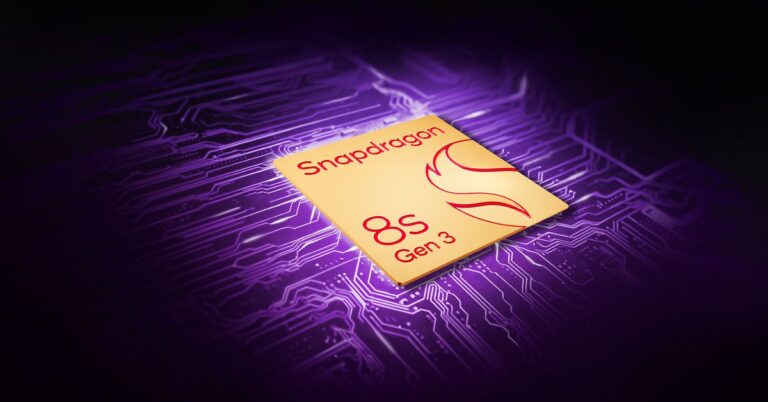
[ad_1]
Qualcomm just launched a new chipset that’s designed to sit just below its current flagship in terms of capabilities and price. The Snapdragon 8S Gen 3 aims to bring most of the 8 Gen 3’s features — including support for on-device generative AI models — to more affordable phones. It represents a new tier for the top-of-the-line 8-series chips, and it’s also a little bit confusing.
Before we get into all that, let’s start with the straightforward stuff: the 8S Gen 3 includes a GPU similar to the standard 8 Gen 3, though it has one less performance core and runs at a lower frequency — the prime core runs at up to 3.0GHz versus 3.4GHz on the 8 Gen 3. The new 8S Gen 3 also uses a previous-gen modem, the X70 5G, which includes Wi-Fi 7 support. There’s also support for hardware-accelerated ray tracing so photorealistic games run more smoothly, which seems to be kind of a benchmark of phone flagship-iness these days.
Naturally, there’s AI. The 8S Gen 3 supports multimodal generative AI on-device and can run large language models of up to 10 billion parameters — that includes the likes of Llama 2 and Gemini Nano. It doesn’t offer all of the AI capabilities of the Snapdragon 8 Gen 3, but it does support gen AI virtual assistants and image expansion.
The way Qualcomm’s Deepu John, senior director of product management, explains it, each Snapdragon high-level tier can be broken down into three sub-categories. There are Snapdragon 8, 7, 6, and 4 series chipsets, and within those, up to three different offerings. This “S” series chip sits just below the standard 8 Gen 3, and if Qualcomm ever releases an 8 Plus Gen 3, it would sit on top.
Got it? Great, it gets even more confusing when you remember that phone manufacturers are still using 2022’s flagship, the Snapdragon 8 Gen 2 in not-quite flagship phones like the OnePlus 12R. There’s also the Snapdragon 7 Gen 3 sitting just below the 8S Gen 3, though it has only turned up in a handful of phones. Qualcomm seems to be slicing the high-end phone market awfully thin, maybe in an attempt to keep OEMs from turning to MediaTek for their less-than-flagship devices.
In any case, the 8S Gen 3 should start appearing on the market soon enough, though not in devices readily sold in the US. Honor, iQOO, Realme, Redmi, and Xiaomi have all said that they’ll be using the platform, with new devices expected “in the coming months.”
[ad_2]